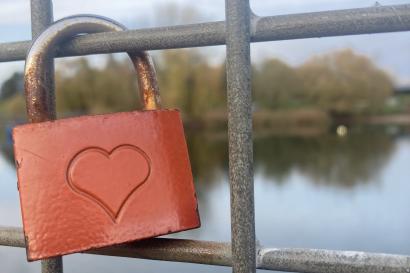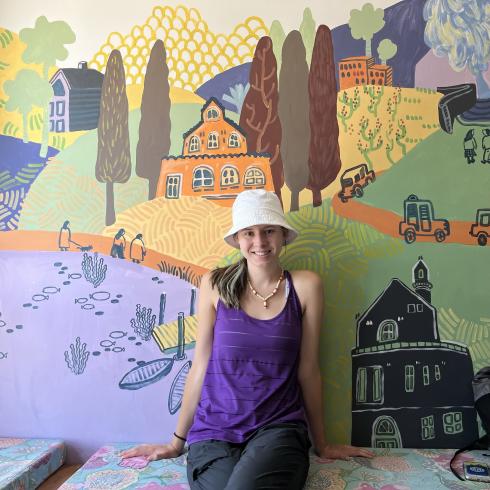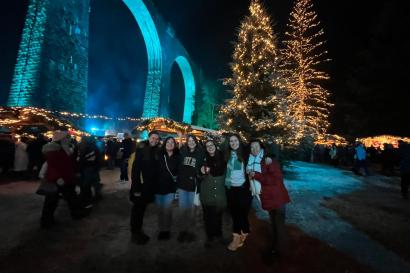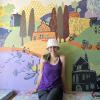
Studying abroad is like going to summer camp. You are pulled from everyday life and dropped into an alternative universe of fun. At one time fun was playing capture the flag and swimming in a lake; now it’s exploring European cities and hiking the Black Forest. Either way, sharing in this intense excitement with other people forms the foundation of the relationships that will carry us through the coming semester. I remember how fast I could make a friend as a twelve-year-old. At the beginning of day one we were exchanging names and by the end of the day we were hugging; by the end of the week, we were telling each other our deepest darkest secrets. It was so easy then. Why does it feel so much more difficult now? I don’t mean to imply that I don’t have friends; I do, but when I’m struggling with mental health or the stress of an impending exam, I don’t always lean on them. We are, at least to me, perpetually stuck in the gray zone between acquaintance and lifelong confidant. It’s a problem I share with lots of people my age. Making friends as adults is hard, so many of us find ourselves surrounded by people yet still feeling lonely. I want to tell someone my secrets and remain pen pals when we go back home. I want summer camp friends.
While perusing the New York Times website, I came across an article that made me rethink my approach to making friends. It was titled “To Fall in Love with Anyone, Do This.” In it, the author described her own success with the methods of an experiment designed to make two people fall in love. So how do you make two people fall in love? Long story short, you stick them in a room together, have them ask each other personal, sometimes uncomfortable questions, and then make them stare into each other’s eyes for four minutes.
And then it hit me, I did make a summer camp friend, and I just talked to him last night! His name is Conner, and despite only knowing each for two weeks this summer in Israel, we’ve kept in touch. I met Conner last July when I tagged along on a museum crawl in Jerusalem. Two days later, he texted me and asked if I wanted to hang out. We sat around for hours, first outside, then in my room, then on the playground after dark, and we played what he called the question game. It’s just as it sounds. To learn about another person, you ask them questions back and forth, silly things like “What would you request as your last meal?” and “What fictional universe would you want to live in and why?” At the time we were playing because it was fun, but the outcome was nonetheless astounding for someone used to beating around the friendship bush.
The next morning, I woke up with Covid and went into quarantine for ten days. I was alone in an apartment, with no food and no friends to keep me company, but Conner and many other people stepped up. He brought me groceries and checked on me every day. Part of it was that he’s just a really good person, but I can’t help but think that we had supercharged the friendship timeline that Friday night. When I got out of quarantine, we saw each other as much as possible, and when he flew home to Oklahoma a couple days later, we were both genuinely sad.
All of this is to say a few things. First, real, deep friendships are possible to make in a short time and they are worth the effort it takes to leave your comfort zone. Second, there is a concrete, proven method for forming these relationships, one that my experiences and the scientists described in the NYT article have discovered.
So, when you begin to build your life abroad, find the time to sit down with a potential friend and create a real connection by learning about each other. There’s no end to the possible questions you can ask, but here are ten you can begin with:
- Why did you choose to study abroad, and why did you choose to go to (blank)?
- What is your earliest childhood memory?
- Would you rather only be able to time travel to the future, or to the past?
- If your house was on fire and you could only grab one thing, what would it be? (Assume all pets and family members have made it out safely)
- What is the most inspiring thing someone has ever said to you?
- If a movie was made about your life, what would it be called?
- Is there anything you really want to do in (blank) before you go home?
- What will you miss about (blank)? What do you miss about home?
- Which animal sidekick from a childhood movie is the best?
- What was the first thing you noticed about me when we met?

Isabel Pineo
Hi there! My name is Isabel Pineo and I am coming to you this semester from Freiburg im Breisgau, a charming city in the Black Forest of sunny southern Germany. The official reason I’m here: to learn about environmental studies in a culture and urban setting known for its emphasis on sustainability. Unofficial reason: to eat amazing food, go on lots of hikes, meet fascinating people both local and foreign, and to focus on putting my physical and mental health first. I guess you could say that I’m searching for answers to the question of what it means to live rightly in the world, for the Earth and for ourselves. Since most of us have been asking that question for a very long time, I’ll be sure to update you on all the answers I find as the semester progresses!







